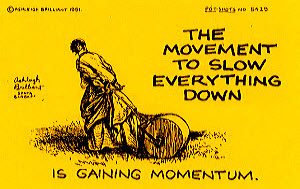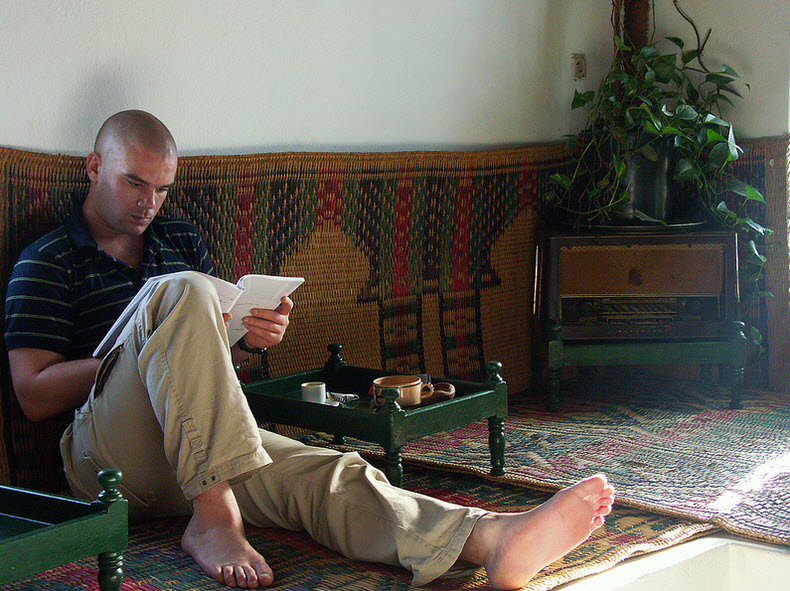Critical Thinking Search and Rescue

I’m presenting the concepts in a certain order so they build upon each other as if we are constructing a house. We start with clearing the land and then we carefully pour the foundation and then we do the framing. It’s a step by step linear progression over time. If you haven’t been following along in sequence, consider going back to start with the series’ Introduction.
So, in this session it makes sense to discuss the most important mechanical system under your control: your thinking system. Nowadays there are technology-induced “deliberation challenges,” and in the Preface of my book (pg. xxvi), I say…
“…in the past thirty years the lure of instant gratification has seized a huge chunk of our population. For members of the hooked-up generation, too many with the attention span of a gnat—addicted to smartphones, preoccupied with social media, and dumbed-down by the silliness of much of the media and entertainment industries—it’s a stretch to slow down to consider the root of things. The nervous gratification of the moment is a distraction from the quiet contemplation of the reasons why events unfold as they do. Today, unlike twenty years ago, a good now is available by just plugging in and tuning out. For too many of us, slowing down to examine things is not entertaining, and that’s too bad because it’s mandatory that we take the time to understand the machinery of our lives if we are to modify that machinery to produce the results we desire.”
No matter what we do with whatever information or attributes we possess, if our thinking isn’t focused and thoughtful, we’ll flounder.

Therefore, before going any further in the series, let’s make a simple system improvement to what’s going on in your head. Let’s reduce the lawlessness by adding some order. What I’m going to give you here can be implemented right now, point-of-sale. There is no preparation needed; no reason not to act instantly. It’s going to be that simple and easy.
I’m a bit ADHD so I have to carefully engineer my day to keep my thinking linear and concentrated. It’s been an obsession for a long time and the centerpiece of the effort is my relentless execution of a certain mechanical exercise: I read a hard-copy book for at least an hour every day.
(Qualifier before we go on: If you’re an avid book-reader already, you can skip this post and go back to your book!)
Here is a blog post entitled Rewire Your Brain. My inspiration came from Nicolas Carr’s book, The Shallows: What the Internet is Doing to our Brains. It’s about rewiring our minds so we can slow down and focus. Your homework will include reading it, but here are the salient points:
- The adaptability of our minds is incredible. This is why we’re the dominant species on planet Earth: we’re able to quickly adjust to changing circumstances. So here we are in this technology-bedeviled world, able to instantaneously absorb and then react to the onslaught of splintered sights, sounds and events that hammer us without letup. Our ability to adapt to this moving-too-fast world is a positive attribute, but there’s a price to pay: it’s hard for us to concentrate for more than a few seconds at a time. So our brains get very good at Whac-A-Mole but they’re horrible at chess. How could that possibly be a good thing?
- Technology has shaped how we think. Can anyone argue that this is not…backwards?
- Carr says that our brains can’t absorb fire-hose torrents of information. We humans are evolved to absorb new knowledge slowly, like filling a bathtub one thimbleful at a time. It turns out that reading a hard-copy book is exactly that, an exercise in long-term absorption that enables us to better retain new information. No less important, a benefit of the exercise is that real-time anxiousness is reduced.
- It’s astonishing yet understandable that technology-induced frenetic thinking can be reversed by just reading a book…within just a few days. Yes, just a few days. That’s a testament to how adaptable our thinking is.
- So, for you and me, reading a book is not just for learning. It’s therapy, the counter-punch to the mania that surrounds us. Go for hard-copy books. Kindle-type reader books and on-line articles? Not so much. I agree with Carr: The imbedded links and the easy-access to other data will distract you. (How about this post? It’s link-infested, so although it’s giving you good information, it’s not going to enhance your long-term memory or help you relax.) And magazines and newspapers also don’t qualify because those formats are scattered into bite-sized chunks. It doesn’t mean these other media choices are not useful: they can provide good information, but they’re not going to stretch out your linear thinking and calm you down.
- Your aim? Read one hour every day. It will be a struggle at first but it won’t take long to get there. If you read at the typical pace, one hour each day will get you through one book every one to two weeks. Be militant about it. Make the daily reading sessions compulsory. And go full-bore point-of-sale here. There is no reason to put this off. If your life is going to get dramatically better, why not make it better now. (Maybe reread the previous session, Concept #1, Point of Sale.
- Carry your book around with you through the day. At home, keep your growing collection in one place. Start a library. Just having books in your peripheral vision will calm your thinking and smooth you out. It’s a Pavlovian thing.
- Should you minimize screen time? Sure, if you can pull it off. Ask yourself, what is necessary in my quest for freedom? Games are a waste of time. So are most social media and TV. You know it’s true.
- Read one book at a time. Having several going simultaneously is scattered, exactly what you are trying to avoid.
- And I recommend hard-cover books, not paperbacks. (But that’s just me: whether it’s a car, house, food, clothes, motorcycle, relationships or reading…I lean hard toward the consequential.)
Here’s your homework:
- Read the blog post I mentioned above, Rewire Your Brain.
- And, for good information while simultaneously rewiring your brain, here are two books you can start to read (one at a time!)
- Big surprise. First, my book, Work the System, the Simple Mechanics of Making More and Working Less. Get it here on this website, for free in PDF or audio. (Do you find it shocking that I recommend the hard-copy?)
- Second: The Shallows: What the Internet is Doing to Our Brains, by Nicholas Carr. BTW, Carr has a more recent book called, The Glass Cage: Automation and Us. He professes, and I paraphrase, “…it’s time for people to regain the art of thinking,” and, “Shifting our attention to computer screens can leave us disengaged and discontented.” That’s perfect. I’m reading Glass Cage now and, like The Shallows, I call it “essential reading.” But be sure to read The Shallows first.
That’s it! Develop the mechanical routine of reading every day. Get obsessive about it; make daily reading a search and rescue quest. Make your thinking potent.
You’ll receive the next post, #3 in this “Obsess” series, on Friday.
Ten Concepts That Obsess Me Now
Introduction
Part 1, Point of Sale
Part 2, Critical Thinking Search and Rescue
Part 3, A Business is a Dispassionate Machine
Part 4, Hyper-Efficiency Via Total Inbox
Part 5, Emailed Voice Mail (EVM)
Part 6, Thinking Slow, Moving Fast
Part 7, Deal Killers and the Main Machine
Part 8, The Simple Key to Double Sales and Create Raving Fans
Part 9, The Tail Wagging the Dog Syndrome
Part 10, Do You Have Quiet Courage?
Illustrated epigram by Ashleigh Brilliant. www.ashleighbrilliant.com
Photo credit – Emma Alevrofas
